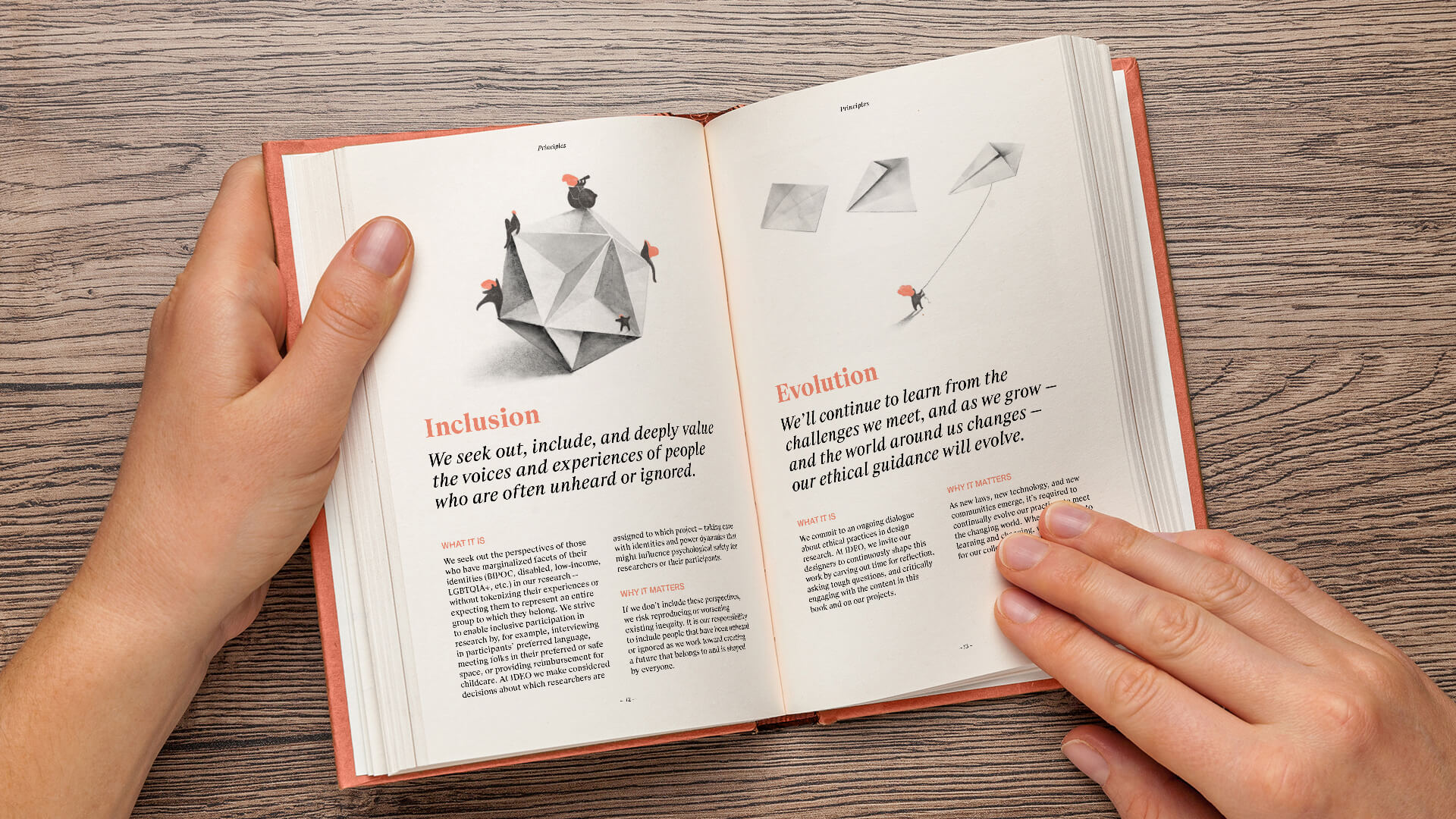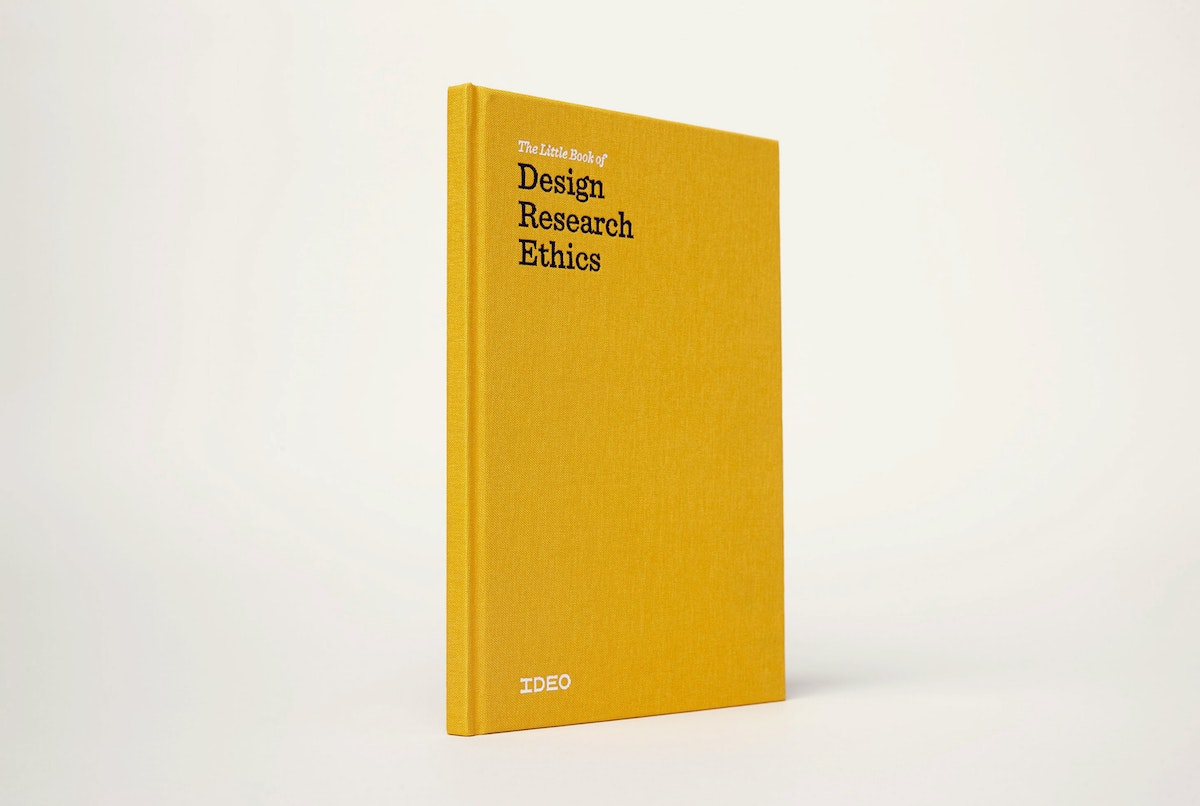A new edition of the Little Book of Design Research Ethics

The secret to groundbreaking design isn’t found in the latest software, but in discovering untold stories and unheard voices.
Design Research—the practice of asking questions that help us understand users, their needs, and their context—is the foundation of our work at IDEO. The way we ask questions and what we do with the answers really matters. Our intake includes white papers, data sets, expert consultants, historical reviews, in-the-field interviews, contextual observation, and analogous research experiences. In all of those inputs, there is a lot that can get ethically murky.
To identify first principles and set some guardrails, we put together the Little Book of Design Research Ethics back in 2015. Yesterday’s guidelines were terrific for their moment, but they won’t cut it now.
Today’s world looks different.
So, we paused, sat down together, questioned our own practices, and wrote a second edition. In it, we’re making a new set of promises to ourselves and to one another about how we work ethically to benefit everyone. An evolution from the first edition, this version also tackles some tough questions and topics: research with minors, HIPAA compliance, affirming ongoing consent, and shared credit in participatory design practices.
We aspire for our design research approach to intentionally shift power from designers to those impacted by design. It is research that helps us better see, understand, and shape our collective future.

In this book, we outline the principles that guide all of our work: Respect, Responsibility, Honesty, Inclusion, and Evolution. That last one is critical, because we already know we won’t get it right. We commit to an ongoing dialogue about ethical practices in design research. As new laws, technologies, and communities emerge, we’ll continually evolve our practices to meet a changing world. We hope you’ll be part of that conversation, too.
Click here to download the Little Book of Design Research Ethics.
Words and art



Subscribe

.svg)









